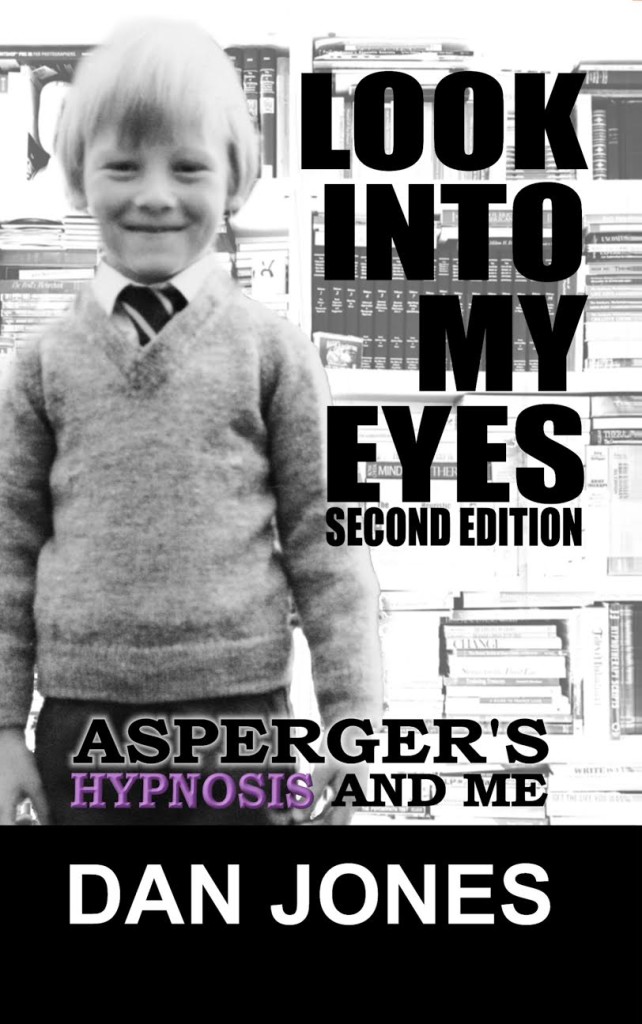 This week is the release of my book Look Into My Eyes which is about my experiences as someone who has Asperger’s Syndrome, a high-functioning form of autism spectrum disorder (ASD), and also my experiences professionally from around 20 years working with those who have autism, their parents/carers, employers and supporting professionals.
This week is the release of my book Look Into My Eyes which is about my experiences as someone who has Asperger’s Syndrome, a high-functioning form of autism spectrum disorder (ASD), and also my experiences professionally from around 20 years working with those who have autism, their parents/carers, employers and supporting professionals.
I was diagnosed with ASD a couple of years ago. Following my adult diagnosis I felt compelled to try to learn more about myself. Until I sought diagnosis I wasn’t a fan of labels. I understood that they could be helpful, but I was also aware of people being treated as the label and not as a person, and some of these people would end up doing the same to themselves, viewing themselves as a label, not as a person.
What led me to seek diagnosis was that I was facing workplace discrimination which I felt powerless to tackle. It was making me depressed and suicidal. It was only when I reached this point that I decided if I had a diagnosis then I would get occupational health support to improve my situation at work. It took almost a year from visiting the GP to receiving diagnosis. In my work with families I had often encountered parents who had a negative view of the expected future for their autistic child. In many cases I could see strengths in these children that the parents weren’t noticing because they were dealing with the problems everyday like violence or challenging behaviour. They had sought diagnosis because of problems the child was having, so when they were told “your child has autism spectrum disorder, it is a lifelong condition” they often heard “the problems with your child will be there for life.” Many of these parents didn’t know much about autism, and hadn’t focused on the strengths their child had, so part of my role as a family worker was to help parents recognise these positives, and help them to learn how to work with the strengths whilst teaching their children how to handle the challenges.
After getting diagnosed I felt that I was in a unique position to help others. Due to working as a psychological therapist and family worker I had better insight about myself as a starting point than most, and I felt if I wrote down about myself I could look objectively at what I had written as if the writing on the page was a client, giving me an opportunity to gain greater insight and understanding. I thought if I wrote a book like that going through my life from birth to present day I would be able to write something which shows what the world is like from within the mind of someone with autism, as well as saying what I, as someone with autism, find helps me, what doesn’t help me, and what I think would be helpful around the different issues I’ve faced at different stages of life. I would also be able to share tips and strategies from a professional perspective, and my wife kindly wrote a chapter about her experiences being in a relationship with someone with autism.
I found the process of writing the book insightful, giving me greater understanding about myself. I have also had many people say how helpful it has been for them to understand why I am the way I am, and many readers have commented how the book has helped to give them a look inside the mind of their child, helping them to better understand their child, and given hope to them about what their child may be capable of in the future if their skills are channelled and they are helped with the challenges they face.
About Me
Dan Jones is author of parenting books including Sleepy Bedtime Tales, which includes 11 bedtime stories to be read to children to help them sleep, and additional tips and strategies for helping children sleep, Relaxing Tales for Children, which is 11 stories to be read to children to help them relax. The stories in these books are targeted at 4-7 year olds. Dan is also author of Look Into My Eyes which is an autobiography through the lens of Asperger’s Syndrome, that includes an extensive chapter of tips and strategies for parents/carers, teachers, friends, employers, and those with autism spectrum disorder, and a chapter written by Dan’s wife about being in a relationship with someone with Asperger’s. Dan has almost 20 years’ experience working within child and family support.
Website: www.alt-solutions.org
These links are for the books mentioned and direct people to their local Amazon website:
Sleepy Bedtime Tales: http://apn.to/prod/1517364248
Relaxing Tales for Children: http://www.apn.to/prod/1539976882
Look Into My Eyes: http://apn.to/prod/1542551196

